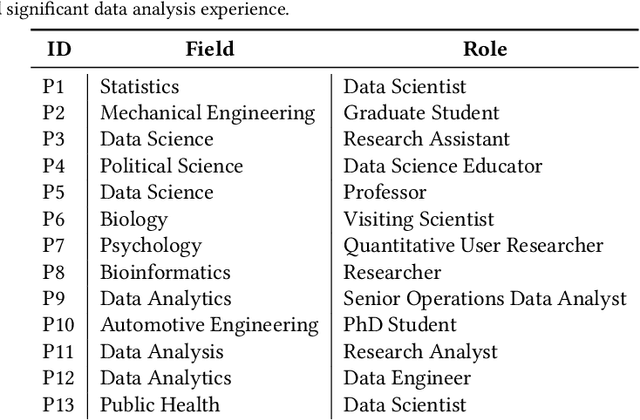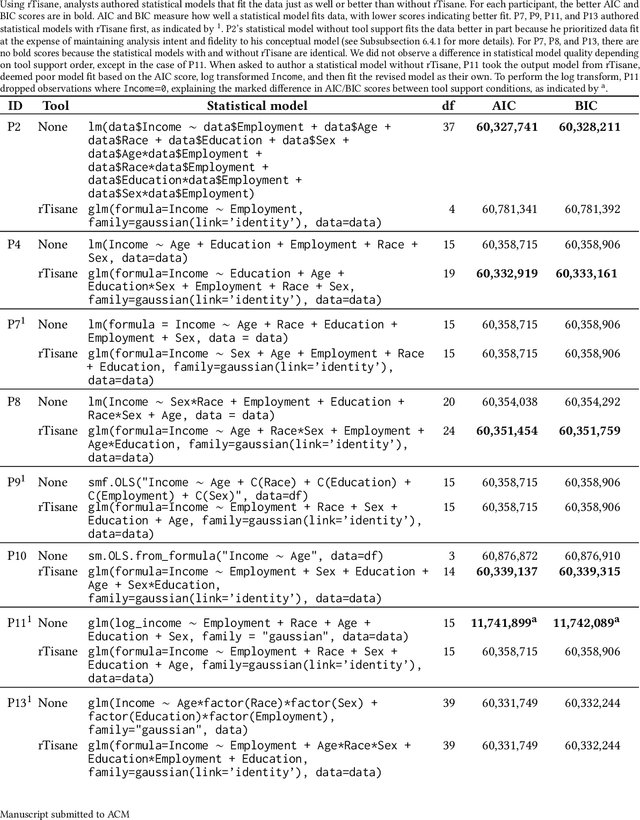rTisane: Externalizing conceptual models for data analysis increases engagement with domain knowledge and improves statistical model quality
Paper and Code
Oct 25, 2023



Statistical models should accurately reflect analysts' domain knowledge about variables and their relationships. While recent tools let analysts express these assumptions and use them to produce a resulting statistical model, it remains unclear what analysts want to express and how externalization impacts statistical model quality. This paper addresses these gaps. We first conduct an exploratory study of analysts using a domain-specific language (DSL) to express conceptual models. We observe a preference for detailing how variables relate and a desire to allow, and then later resolve, ambiguity in their conceptual models. We leverage these findings to develop rTisane, a DSL for expressing conceptual models augmented with an interactive disambiguation process. In a controlled evaluation, we find that rTisane's DSL helps analysts engage more deeply with and accurately externalize their assumptions. rTisane also leads to statistical models that match analysts' assumptions, maintain analysis intent, and better fit the data.
 Add to Chrome
Add to Chrome Add to Firefox
Add to Firefox Add to Edge
Add to Edge